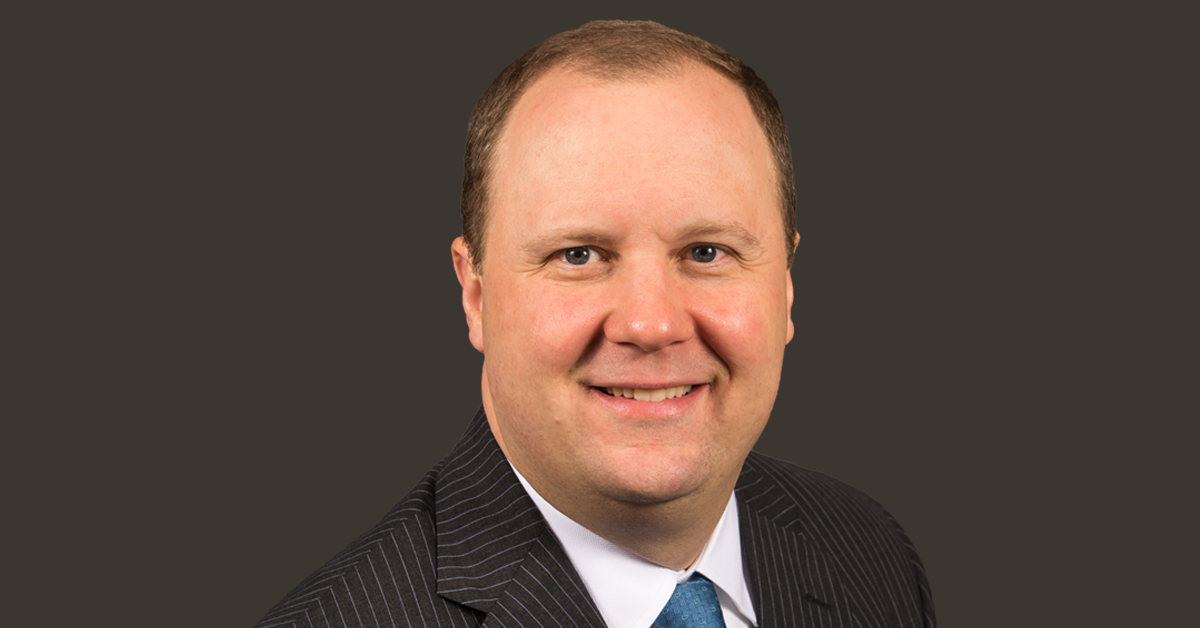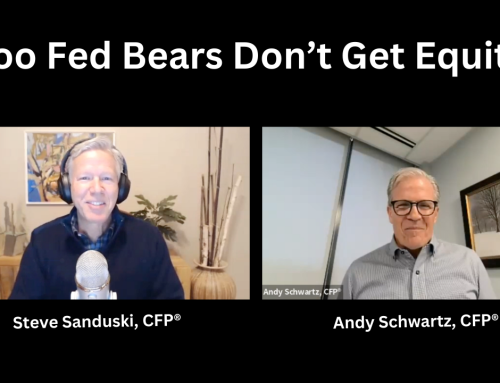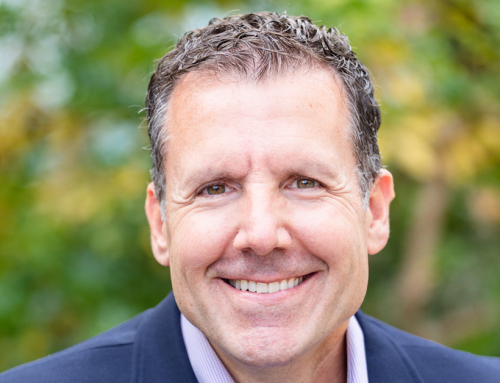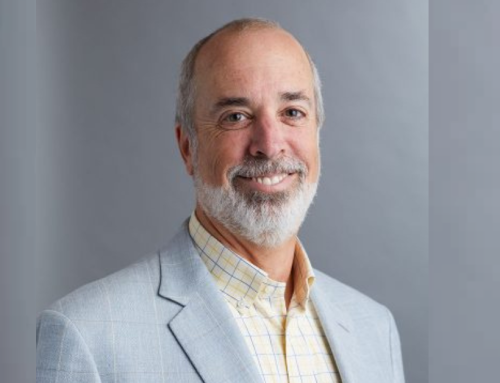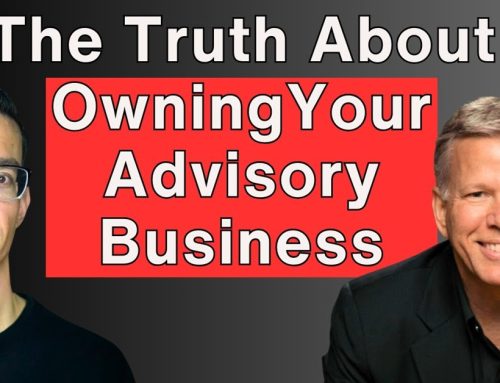Guest: Eric Brotman, CFP®, AEP®, CPWA®, is a Principal and the Chief Executive Officer of BFG Financial Advisors. Eric began his financial planning practice in Baltimore in 1994, and founded Brotman Financial Group in 2003, which later became BFG Financial Advisors. He and his team focus on supporting families and individuals by providing comprehensive financial planning and wealth management services.
Eric is also the author of Don’t Retire… Graduate!: Building a Path to Financial Freedom and Retirement at Any Age.
In a Nutshell: As a founder/advisor, how does your role evolve over time?
I frequently have these conversations with my coaching clients where we discuss what does the advisor want their role to be.
In the early stages of your career, you have to do everything, but as the business grows, you have to decide what you’re going to double down on and what you’re going to let go of. There’s no one answer that fits every advisor. Some advisors naturally and easily segue into a leadership role and give up most, if not all of their lead advisor client relationships. Other advisors do not enjoy the management role of running the business, managing people, and they prefer the relationship side of the business and business development.
Regardless of which route you want to go, you have to figure out how to build the team and the infrastructure around you so that every function within the organization is getting taken care of at a high level such that you can focus on what you do best, what you enjoy the most, and that moves the needle for the company.
On today’s show, Eric Brotman and I have a wide-ranging conversation that touches on evolving your role over time, succession planning, transitioning clients, teamwork, scalable processes, and how to accelerate organic growth without losing a human touch.
.
Eric Brotman and I discuss:
- The four channels of business development that Eric focuses on.
- How to transition clients between advisors.
- Concentrating on relationships and centers of influence that are most beneficial to growth.
- Finding the right strategic balance between organic growth and M&A.
- Using comp structure to encourage collaboration rather than competition among advisors.
- Why AI can help with rote tasks like note-taking and compliance, but not with complex human-to-human financial advice.
- The strategic alliances Eric is forging to provide clients with more robust services.
- Eric’s move into a Chief Growth Officer role and how he’s learning to let go so the business can keep growing.
Quotes:
Eric Brotman on his proactive approach to building a team:
“I think the turning point for the firm was taking on and selling some equity in my late thirties to a junior partner and realizing that I did not want to do this alone, despite being the entrepreneur and the face of the firm. I really wanted to build a team. So the combination of having started selling shares at a very young age — and people thought I was nuts — and then growing a team both organically and inorganically. Our organic client development has been strong over the years, but we’ve also added two other M& A activities. One, bringing somebody on who was five years from retirement who was able to come and transition her clientele to us, and then we bought her out. And another person who came in and has a long runway ahead with the company, and is my successor.”
Eric Brotman ranks his four business development channels on how much new business they drive:
“Number one is Financial Wellness, because you’re meeting with so many people that it creates this opportunity right off the bat. If you can get an employer to say yes and they have 400 employees, 100 of them are going to meet with you. 12 of them are going to say, ‘I’d like to work with you beyond this engagement.’
I would say the second one would be Strategic Alliances. And again, it’s because it’s one-to-many. Working with a 401(k) producer, working with a firm that is also generating opportunities that they can’t handle or don’t want, means that we’re getting an avalanche from those folks. It’s not a one-off like a referral might be.
I would say Centers of Influence is probably third, with the caveat that most of the new business that comes from Centers of Influence is the highest-end client. So when you look at the revenue per client, the depth of the revenue in that relationship, if it’s coming from an estate attorney it’s generally going to be better than if it’s coming from an entry-level employee in a financial wellness program.
And I would say that the Media piece is fourth, and it’s a distant fourth. Writing books does not make you money. It becomes an interesting calling card. It gets you speaking opportunities. It’s created consulting business for me. But it hasn’t created a huge number of households joining the firm. I don’t think it hurts, but no one should write a book for the money. It’s fun, I love doing it, but you don’t make money on it. Normally the books are sent to an attorney after a one-on-one COI meeting, or they’re sent to the employer to say, ‘Hey, if you’d like workbooks for your employees, we can do a bulk order for those.’ And the workbooks are great. People love being able to go through and build their own financial plan. The book is fun, but it’s not John Grisham.”
Eric Brotman on the hardest part of growing his business:
“The hardest part is recognizing that I can’t do it all. When I was a startup, I did everything. I had to trust the experts and let people get better at things than me. That means giving up a lot of the hands-on stuff that I was used to. And it’s been a blessing, but it was challenging to trust other people to do it differently than I would do it, but just as good. I’m not trying to create an army of mini-me’s. I do a lot of mentoring and coaching, but our younger advisors need to know what they’re doing and they do, they’re very talented. But they also have to know how to massage certain situations or how to engage in certain conversations. There are days still where I say, ‘Man, if I had done this myself, it would have been X, Y, and Z.’ And then I have to slap myself and say, ‘That’s not reality. That’s not how it works.’ And we have great people. We get a lot of positive feedback about our team. We hire really well. We engage our clients and our staff a lot. And the things we get complimented on the most are our people. And so that means we’re hiring well, it means we’re training well, but it means I’m staying out of it. And for me, I’m much more external than internal these days. The place will run without me. If I tripped and fell into traffic today, the office wouldn’t miss a beat. They’d miss my charming personality, but they would not miss a beat. They would repurpose my office immediately. And at the end of the day, I think I’ve made myself irrelevant. Which is incredibly important as a business owner in any industry and also really hard.'”

